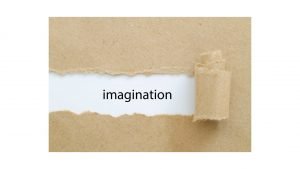Everyone knows the famous scientist Albert Einstein (read his brief biography below). Known for devising his theory of relativity, he played a major role in developing our understanding of time, space and of course, the Universe. Einstein, often regarded as a genius, demonstrated that curiosity, inquisitiveness and patience were some of the most important traits, necessary to make breakthrough discoveries and understand the nature of things. We will go over Einstein’s approaches that led him to become who he was .
Here is how you can learn to think like Albert Einstein.
Always be curious

Curiosity is one of the most important things a person can develop. Einstein was very strong with this. He wouldn’t learn something without digging deeper and learning more. Curiosity expands your knowledge by a huge amount, and trains your brain to adapt to learning more. Einstein talked about curiosity being a gift that you can give yourself. If you are dedicated to think deeper about everything, you most certainly become smarter with everything.
Epistemic curiosity – driven by a desire for knowledge and understanding; it’s what motivates individuals to study, research and delve deep into specific subjects.
Learn from your mistakes
You have probably heard this statement from someone or something before. But how about hearing it from Albert Einstein? One of his most famous quotes promotes this saying, and it is very true. Einstein’s statement “Anyone who has never made a mistake has never tried anything new” is a very powerful one. It’s meaning: if you don’t make mistakes, you simply aren’t learning. If everything you do is done right, that means you aren’t challenging yourself to do more difficult things. You aren’t pushing yourself to the next level of intelligence. When you make a mistake, that means you are trying something both new and more challenging. Learning from your mistakes is like learning how to ride a bike with no training wheels. You could simply quit trying, or you could try your hardest. The more you fall, the more experience you get; and eventually you succeed and you learn to ride the bike.
How to learn from mistakes effectively
- Acknowledge – the first step in learning from a mistake is understanding and acknowledging that it has occurred;
- Analyze – develop the understanding why the mistake happened;
- Reflect – the process involves considering how making a mistake affected the outcome, what were the implications of making the mistake;
- Learn – extract the lesson and insights from the previous three stages and think how it can be applied in the future;
- Apply – the ultimate goal of learning from a mistake is to apply the lessons learned to future situations;
- Share lessons learned – helps prevent others from making the same mistakes.
Develop a strong imagination

This is one of the most common strategies to becoming a genius. The brain can be easily trained to imagine things at all times. Einstein was known to examine little things in his life, like calculating the area of clocks in homes, and adding math to every object he saw. This caused his brain to become more advanced and now capable of educating itself. Adding little bits of math to your day can change your life, and in Einstein’s case, it changed the world’s knowledge of outer space.
Simple steps that help develop imagination
- Read widely and voraciously – explore difference genres, including non-fiction;
- Keep a journal or an idea notepad – record any interesting ideas, vocabulary or findings;
- Observe the environment around you – try to notice things that you normally don’t pay attention to;
- Connect and collaborate – “two brains are better than one” they say;
- Challenge yourself regularly – especially challenge your normal way of thinking, solve puzzles and strategy games (see the next block “How you can train yourself”).
How you can train yourself
Training your brain to be more advanced is a lot easier than you may think. You need to have the initiative to learn outside of any education you may have. Practice what you aren’t great at, and be creative with your thoughts. Confidence and creative thinking will power your brain to think critically and quickly.
If intelligence was simply measured by a person’s IQ score, Einstein would not even be near the top. A lot of people now realize that there is much more to being brilliant.
Einstein’s intelligence was his imagination and curiosity. If you were to look for a needle in a haystack, what would you do if you found it? Probably give up. Einstein said he would keep looking to see if there were any more needles, and only stop when he had looked through every strand of hay.
About Albert Einstein
Albert Einstein was born in Ulm in Baden-Wurttemberg, Germany, on March 14, 1879. He was inquisitive and curious, loved math, science and music, but was considered a slow learner at school. Despite that, he went on with his post-secondary education and started researching the world around him. In 1915, Einstein published his general theory of relativity, which was considered his most important work.
The theory showed that force and motion are affected by time and space.
Einstein received honourary doctorates in science, medicine and philosophy from many universities. He conducted lectures around the globe and was awarded scholarships or memberships in all the leading scientific academies. He was widely recognized for his work, including receiving the Copley Medal of the Royal Society of London in 1925 and the Franklin Medal of the Franklin Institute in 1935. Element 99 was named einsteinium (Es) after him.

One thought on “Things you can do to think like Albert Einstein”